(This Torah Teaching is for Shabbat of August 3rd, 2024)
(Donate and support this Ministry by clicking here)
Torah: Numbers 30:2 – 36:13
Haftarah: Jeremiah 2:4-28; 4:1-2
This week is a double Torah portion covering both Torah Parsha Matot as well as Torah Parsha Massei…
Matot (מַּטּוֹת)— Hebrew for “tribes”, Matot is the fifth word in the parashah. It is the 42nd weekly Torah portion (פָּרָשָׁה, parashah) in the annual cycle of Torah reading and the ninth in the Book of Numbers. It constitutes Numbers 30:2–32:42
Mas’ei (מַסְעֵי) — Hebrew for “journeys,” Mas’ei is the second word in the parashah. It is the 43rd weekly Torah portion (פָּרָשָׁה, parashah) in the annual cycle of Torah reading and the 10th and last in the Book of Numbers. The parashah discusses the stations of the Israelites’ journeys, instructions for taking the land of Israel, cities for the Levites and refuge, and the daughters of Zelophehad The parashah constitutes Numbers 33:1–36:13
Torah Parsha Matot-Massei Summary
Numbers 30:2 -36:1
Moses conveys the laws governing the annulment of vows to the heads of the tribes of Israel. War is waged against Midian for their role in plotting the moral destruction of Israel, and the Torah gives a detailed account of the war spoils and how they were allocated among the people, the warriors, the Levites and the high priest.
The tribes of Reuben and Gad (later joined by half of the tribe of Manasseh) ask for the lands east of the Jordan as their portion in the Promised Land, these being prime pastureland for their cattle. Moses is initially angered by the request, but subsequently agrees on the condition that they first join, and lead, in Israel’s conquest of the lands west of the Jordan.
The forty-two journeys and encampments of Israel are listed, from the Exodus to their encampment on the plains of Moab across the river from the land of Canaan. The boundaries of the Promised Land are given, and cities of refuge are designated as havens and places of exile for inadvertent murderers. The daughters of Tzelofchad marry within their own tribe of Manasseh, so that the estate which they inherit from their father should not pass to the province of another tribe.
NEW DVAR TORAH STUDIES FOR DEEPER UNDERSTANDING…
For further Torah study on parashah “Matot/Masei”, please enjoy the latest illustrated Dvar Torah video teaching below… Listen and learn from Rabbi Isaac as he takes your understanding to an even deeper level! Enjoy and be blessed!
ADVANCED MATOT/MASEI DVAR TORAH
TORAH FOR YOUR CHILDREN…
For a simple cartoon summary of the Torah parashot for your children we recommend the following video below:
Haftarah
Jeremiah 2:4-28; 4:1-2
This week’s haftorah is the second of a series of three “haftarot of affliction.” These three haftarot are read during the Three Weeks of mourning for Jerusalem, between the fasts of 17 Tammuz and 9 Av.
The prophet Jeremiah transmits God’s message to the Jewish people, in strong tones chastising all the sectors of the people, including the leadership, for their abandonment of God. “What wrong did your forefathers find in Me, that they distanced themselves from Me, and they went after futility and themselves became futile?” He reminds them of the kindness God did for them, taking them out of Egypt and leading them through the desert and settling them in the Promised Land, yet they repaid kindness with disloyalty. “For My people have committed two evils; they have forsaken Me, the spring of living waters, [and furthermore, this was in order] to dig for themselves cisterns, broken cisterns that do not hold water.”
God asks them to view the actions of their neighboring nations, the Kittites and Kedarites, “and see whether there was any such thing, whether a nation exchanged a god, although they are not gods. Yet My nation exchanged their glory for what does not avail.”
Jeremiah then goes on to foretell the suffering the Jewish people will suffer at the hands of their enemies, and also their erstwhile allies: “Your evil will chastise you, and you will be rebuked for your backslidings; and you shall know and see that your forsaking the LORD your Gdd is evil and bitter.”
The haftorah ends on an encouraging note, assuring the people that if they return to God with sincerity, they will be restored to their full glory.
We hope this Torah teaching blesses you in your spiritual understanding and growth! As we are solely supported by your Tzedakah charity, please consider supporting this ministry for the continued spread of Truth by giving a love offering here.
Also if you have a need for prayer, please write us and let us know how to pray for you and we feel privileged to be intercessors in prayer for all our worldwide family!
Don’t forget to… – GO to our YouTube channel and… – LIKE the videos – SUBSCRIBE to our channel – SHARE our YouTube channel – SUPPORT our Worldwide outreach – FOLLOW us on Instagram – FIND us on Facebook, as well as… – SHINE THE LIGHT by spreading our website: https://www.calledoutbelievers.org with your family and friends on Facebook as well as your other Social Media platforms!
Torah Parashah teaching with video and audio and illustrations by Rabbi Isaac. ©Assembly of Called-Out Believers. Use by Permission.
Website: www.CalledOutBelievers.org






3 Comments
A very good teaching and perspective on the Torah, I will be tuning in more often.
Is there any way that you could have someone with a microphone stand with the congregation members who are making a point on the teaching–the Rabbi listens and usually agrees with the speaker, but we, the viewers usually cannot hear what the speaker in the audience is saying–we catch portions of the observation but the whole of it is usually lost. Thank you so much and may Yeshua richly bless the leaders and members of this community.
I love joining you on Saturdays. It is a delight to my soul. Thank you so much.
Thank you!